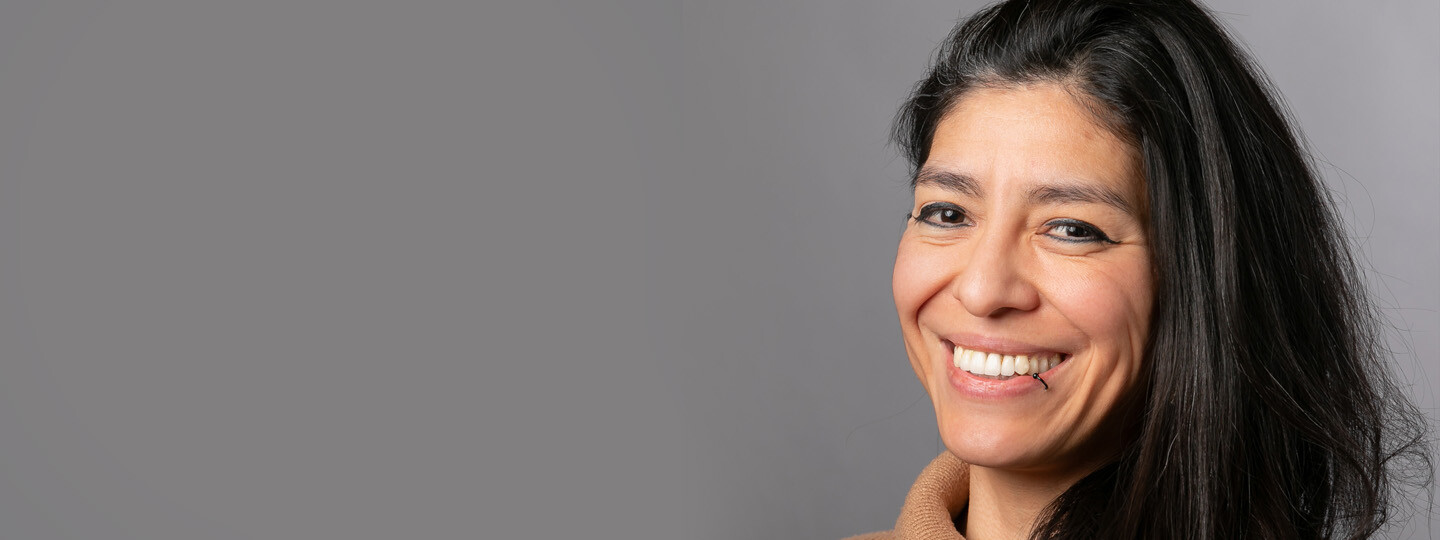Oikeustieteellisen tiedekunnan Tutkija valokeilassa -uutissarjassa esittelyvuorossa on tutkijatohtori Aleida Luján Pinelo.
Position in the Faculty of Law: Postdoctoral researcher
Degrees: BA in Philosophy, MA in Women’s and Gender Studies, PhD in Law
Fields of interest: I have broad interests that intersect, including feminist philosophy (such as new materialism and posthumanism), gender studies, data feminism, critical pedagogies, feminist criminology, epistemologies of the South (such as postcoloniality and decoloniality), complex thinking, and politics.
Describe your career path. What led you to where you are today?
My career path has been far from straightforward; one narrative could be the following. I had the fortune of studying at a public arts high school in my hometown Oaxaca. There, professors encouraged us to think creatively and explore ways to combine sciences and arts. I specialized in theater, a discipline in which the living body (not the body as object) is key. Therefore, during my bachelor’s studies in philosophy, my interest focused on the role esthetics and the living body had in the production of knowledge. That is how I ended up writing my bachelor’s thesis on the concept of the body in Maurice Merleau-Ponty’s work Phenomenology of Perception. Already in that thesis, I addressed the potential that embodied language, perception, and experience had for the law; for example, non-verbal language in testimonies of victims of rape. I was mostly interested in the embodied aspect of the human experience; therefore, when I first read Rosi Braidotti’s work on nomadic theory and new materialism, during my master’s studies at Utrecht University in 2014, I immediately felt a sense of identification with these ideas and began to study them in greater depth. While I studied these philosophies, interest in them was also increasing. However, a constant critique kept buzzing in my ear: new materialism does make sense in theoretical, performative, and explorative terms, but not in terms of political action—for example, in policy making and activism. I was provoked by this idea, so I decided to explore this aspect during my PhD.
On the other hand, my feminist engagement was sparked during the summer of 2006 when I volunteered at the Women’s Institute in Oaxaca. There, I had the opportunity to work with journalist Graciela Atencio founder of the feminicide observatory in Spain. She introduced me to the history of Western feminism, as well as activism and documentation related to feminicide. Later, during an academic break in Berlin (2011-2013), two stories caught my attention: the killing of a Colombian woman by her German ex-partner and the killing of a Turkish woman by her Turkish partner. The differences in media coverage and the respective discourses about violence and culture left me feeling both angry and suspicious. The lack of information on feminicide in Germany intrigued me, but Germany’s denial of the existence of feminicides within its territory in a 2014 statement to the UNODC prompted me to act. I decided to pursue a PhD to challenge this denial, and to be able to explore and give answers to my onto-epistemological questions. In my career, I’ve encountered numerous “nos”. However, those very nos often led to unexpected opportunities. It’s how I found myself in Turku, all thanks to Johanna Niemi, who finally said “yes” after a string of rejections.
What projects are you currently working on?
Much of my current work goes around project funding applications, which leds to several potential projects. A personal project, for which I am actively seeking funding, aims to explore the impact of conversations between new materialism and epistemologies of the South on legal scholarship. Simultaneously, I am analyzing data and working on unfinished articles related to my previous project on feminicide in Europe. Additionally, I am collaborating with Amalia Verdú on a paper on critical legal education, which could lead to further creative experiments and spin-off projects. Finally, I am working on a collaborative paper on criminal law and forced marriage in the global South from a decolonial feminist perspective.
Have your interests evolved since finishing your studies?
Oh yes, of course! While some of these changes are evident in my previous answers, I still sense that certain core philosophical concerns persist, interwoven with other topics. My initial interest in feminist philosophy unexpectedly led me to explore new arenas, including working in a Law Faculty, a fascinating experience that has opened other worlds, other discussions, and other ways of understanding reality. Among my recent interests are data feminism, alternatives to the carceral system and alternative notions of justice, and decolonial, communitarian, and indigenous epistemologies.
What would you be, if you were not a researcher?
What an existential question! I decided to study philosophy because I wasn’t sure what to study. I liked so many things that I thought studying philosophy, “the mother of all sciences”, would clear up my mind. Decades later, I can say that my strategy did not work; I am still uncertain about what I would be if not a researcher, and my interests have expanded... Who knows! Maybe I would have overcome my fear of numbers and equations and would be a STEM or environmental scientist.
What inspires you?
I consider myself a pessimistic person, but I try to hold onto the idea attributed to Antonio Gramsci: “pessimism of the intellect, optimism of the will”. Considering this, my optimism and inspiration emerge from diverse sources, often unexpectedly. These include the actions of everyday people and communities driving small societal changes, the creativity of individuals and communities across various domains, the wonders of nature and the universe, diverse conversations, and reflections on the genealogies that paved the way for my existence today.





